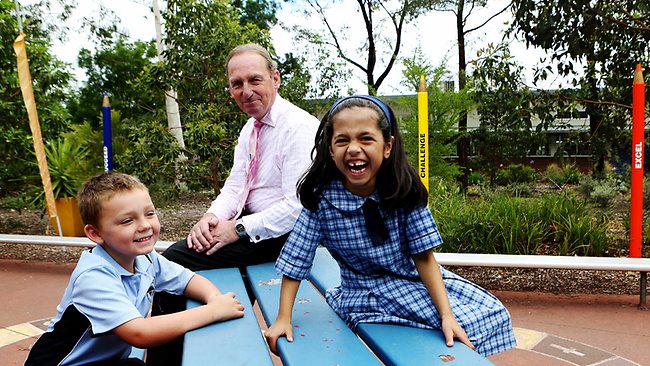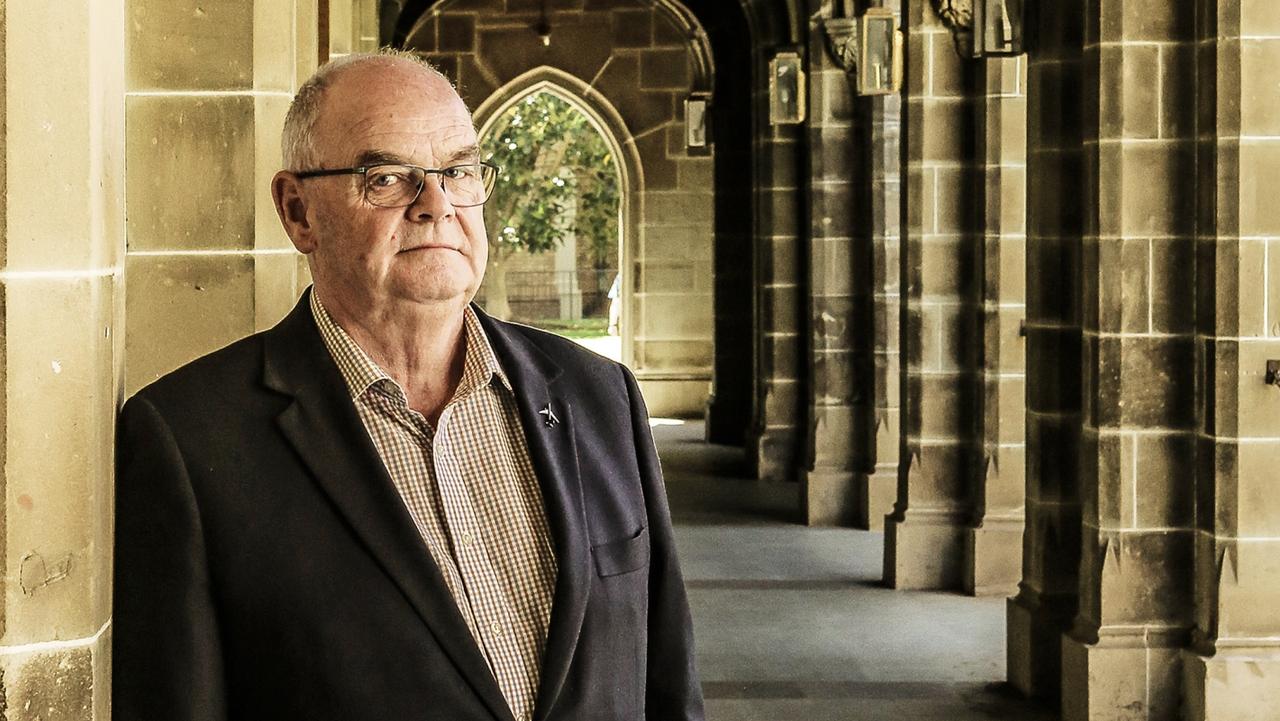Christopher Pyne sparks states' revolt on Gonski reversal
THE most powerful conservative states were last night leading a revolt against plans to dismantle Labor's Gonski reforms.
THE most powerful conservative states were last night leading a national revolt against Abbott government plans to dismantle Labor's Gonski reforms, amid fears the overhaul will greatly disadvantage school budgets.
NSW and Victoria yesterday warned federal Education Minister Christopher Pyne he must honour the multi-billion-dollar pre-election financial deal in full, despite his concerns the system was a shambles.
The two power states were joined by educators, the peak union and the Labor states in questioning the motives for the federal government's new position. Tasmania threatened possible legal action against the commonwealth, while only the independent schools system appeared to be onside with Mr Pyne.
Kathryn Greiner, a former member of the Gonski review panel, urged Mr Pyne to recall the Gonski panel for one day to convince him of the system's benefits.
"We are not saying this is perfect - I can understand this is complex - but I think they are acting on the wrong information," Ms Greiner told The Australian.
"I think it is way too early to pull the pin on something that has taken five years to achieve before it is even implemented."
Mr Pyne refused to back away from his criticisms of the Gonski plan, revealed in The Australian yesterday, arguing that the reforms were unworkable and needed an urgent overhaul.
"It simply can't be implemented in its current form," the minister said yesterday.
"We have to go away and do the right thing.
"I will go back to the drawing board."
Mr Pyne's position on the Gonski reforms was greeted with hostility by NSW and Victoria, which signed on to their agreements before the September federal election. The states' decision to sign on to the reforms is believed to have angered Mr Pyne, who has conducted meetings in recent weeks with the states. NSW Education Minister Andrew Piccoli has declared that Labor's changes to the funding model secured much-needed resources to schools across the state, many of which had been "in most need". The deal was binding, he added.
"We have already implemented the new funding model to NSW's 2200 schools, and it has been received with wide acclaim from the education sector," Mr Piccoli said.
"Any attempt to change the model now may see both government and non-government schools lose funding."
Victorian Education Minister Martin Dixon issued a terse statement demanding that the funding agreement be honoured.
"Victoria made it clear that, along with Victorian schools and school communities, we expect the commonwealth to honour this funding, which was agreed to on August 4, 2013," Mr Dixon said.
The backlash from the states erupted as the National Catholic Education Commission revealed it had met last week with representatives from Tony Abbott's Commission of Audit to discuss the "sustainability of funding" under Labor's Gonski response.
While the government has given the commission free rein to look at waste within the bureaucracy, it pledged to make no cuts to the overall level of education funding.
NCEC executive director Ross Fox confirmed the Commission of Audit approached Catholic schools to discuss the sustainability of the Australian Education Act. It is understood independent schools were also approached.
The Australian revealed yesterday that Mr Pyne had declared that Labor's reforms were impossible to implement and that he needed to have a root-and-branch overhaul of the way the school funding was administered.
The Coalition committed during the election campaign to provide the same $2.8bn funding to schools during the next four years but promised less central control. Mr Pyne told The Australian the government did not have any plans to reduce the overall level of funding or to renegotiate the funding agreements.
He said in a statement last night he would honour the Coalition's election pledge to match Labor's school funding spend over the next four years.
Bill Shorten attacked "the weasel words of the government, saying before an election they'll look after schools and properly fund our children in the future and look after schools, then they now dial forward and say all bets are not off, 'there were no deals, we're not going to be able to do anything'."
Independent Schools Council of Australia executive director Bill Daniels said the sector looked forward to working with the government "to achieve a sustainable and less complicated" funding structure. "The new funding model lacks transparency, is too complicated and is based on data that is unreliable and of poor quality," Mr Daniels said.
Australian Education Union federal president Angelo Gavrielatos said the Coalition's commitment to Gonski was always questionable and politically motivated. Victorian Catholic Education executive director Stephen Elder said: "We expect Minister Pyne to honour his funding commitment."
Greens education spokeswoman Penny Wright said the Coalition had "no mandate" for its backflip on school funding and the Greens would try to block any changes in the Senate.
South Australian Premier Jay Weatherill said Mr Pyne's "backslide" on school funding was extraordinary and that $1bn worth of funding was at risk.
Tasmanian Education Minister Nick McKim said that any attempt by the Abbott government to change the state's Gonski education funding deal would risk a legal fight. The state would demand full delivery of its "binding" $380m agreement.
"Christopher Pyne and Tony Abbott are clearly positioning themselves to attack and to vandalise Tasmania and the rest of the country around the Better Schools agreement," he said.
Additional reporting: Michael Owen, Matthew Denholm, Andrew Fraser



